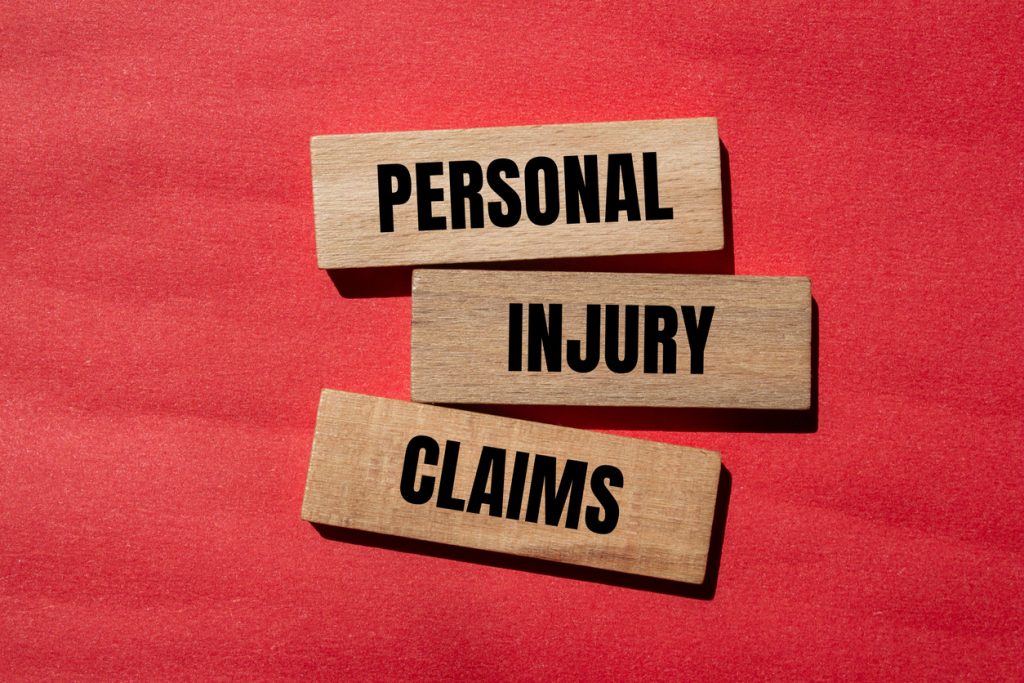Understanding the time limits for filing a personal injury claim in Stuart is vital for securing rightful compensation. Florida’s statute of limitations generally imposes a four-year window from the accident date. Yet, exceptions like the Discovery Rule or cases involving minors can alter this timeframe. Maneuvering these complexities requires strategic action and expert guidance. Recognizing these nuances is essential, as missing key deadlines can jeopardize an entire claim, affecting both justice and potential financial recovery.
Understanding the Statute of Limitations in Florida
In the domain of personal injury claims in Florida, understanding the statute of limitations is essential for ensuring that victims protect their legal rights effectively. The statute overview dictates that individuals typically have four years from the date of the incident to initiate the filing process. This timeline underscores the importance of prompt action. A thorough grasp of this statutory period empowers victims to gather evidence, consult legal counsel, and prepare their case diligently. The filing process itself demands meticulous attention to detail, as any oversight can jeopardize the claim’s validity. Legal professionals in Stuart emphasize that adhering to the statute’s timeline is not merely procedural; it is a critical component in safeguarding one’s entitlement to compensation and justice in the aftermath of personal injury.
Exceptions to the Four-Year Rule
In the domain of personal injury claims in Stuart, certain exceptions exist that can extend the standard four-year statute of limitations. Particularly, the application of the Discovery Rule allows for the commencement of a claim once an injury is discovered or should have been discovered with reasonable diligence. Additionally, situations involving fraudulent concealment by the defendant or claims involving minors and individuals with disabilities may warrant an extension beyond the typical timeframe, ensuring that justice remains accessible despite potential delays in filing.
Discovery Rule Application
How does the discovery rule alter the landscape of personal injury claims in Stuart? The discovery rule introduces a pivotal exception to the standard four-year statute of limitations for personal injury claims. This legal doctrine recognizes situations where an injury is not immediately apparent, allowing the statute of limitations to commence from the time the injury is discovered, rather than when it occurred. The legal implications of this rule are profound, as it guarantees that claimants are not unjustly penalized for latent injuries—those which manifest over time. This nuanced approach underscores the importance of maintaining fairness within the legal system, guaranteeing victims have the opportunity to seek rightful compensation even when the harm is not initially obvious.
Fraudulent Concealment Impact
Fraudulent concealment profoundly influences the statute of limitations for personal injury claims, serving as a crucial exception to the standard four-year rule in Stuart. When a defendant deliberately hides relevant information, fraud detection becomes paramount. This concealment can postpone the commencement of the statute of limitations until the deception is uncovered. The legal ramifications are significant; they guarantee that plaintiffs retain the right to seek justice beyond the typical timeframe. Legal professionals must meticulously investigate claims, unearthing evidence of intentional deceit. This diligence is essential for holding parties accountable and preventing the erosion of victims’ rights. Consequently, fraudulent concealment not only extends the statute but reinforces the legal system’s commitment to fairness and thoroughness in adjudication.
Minors and Disability Exceptions
While fraudulent concealment highlights the complexities surrounding the statute of limitations, another layer of intricacy emerges with exceptions pertaining to minors and individuals with disabilities. Under Florida law, minor exceptions allow the statute of limitations for personal injury claims to be tolled until the minor reaches the age of majority, granting them the opportunity to file until they turn 18. Furthermore, disability considerations are vital for individuals who are mentally incapacitated at the time of the injury. In such cases, the clock on the statute of limitations may pause until the disability is lifted. These exceptions guarantee that vulnerable individuals are not unjustly barred from seeking justice due to age or mental capacity, providing essential safeguards within the legal framework of Stuart personal injury claims.
The Discovery Rule and Its Impact
The Discovery Rule plays an essential role in personal injury claims by addressing situations where a victim becomes aware of their injury only after the standard statute of limitations has passed. This rule acknowledges that certain injuries may not be immediately apparent, thereby providing legal time extensions to guarantee that justice is not denied due to delayed injury awareness. By understanding the nuances of this rule, claimants in Stuart can better navigate the complexities of filing a timely and effective personal injury claim.
Understanding Discovery Rule
Maneuvering the intricacies of personal injury law, the discovery rule emerges as a pivotal principle, particularly for claimants in Stuart. This rule serves as a safeguard, acknowledging that an injury or its cause may not be immediately apparent. Within the discovery process, understanding legal definitions is vital. The discovery rule effectively extends the statute of limitations, allowing the clock to start ticking from the moment an injury is discovered, rather than when it occurred. This nuanced approach guarantees claimants aren’t penalized for latent injuries or obscured damages. By grasping this concept, individuals are better positioned to protect their rights and pursue rightful compensation. For claimants in Stuart, comprehending the discovery rule is indispensable for maneuvering legal challenges successfully.
Delayed Injury Awareness
How does one navigate the complexities of delayed injury awareness in personal injury claims effectively? The discovery rule is fundamental for claimants facing delayed diagnosis of injury symptoms. This legal principle recognizes that injuries may not be immediately apparent and allows the statute of limitations to commence when an injury is discovered or should have been discovered with reasonable diligence. For individuals in Stuart, understanding the nuances of this rule is vital. Delayed diagnosis can complicate claims, as symptoms might only emerge well after the incident. Consequently, documenting medical evaluations and maintaining detailed records is indispensable. Legal guidance guarantees that claimants accurately establish the timeline of symptom discovery, safeguarding their right to pursue rightful compensation despite initial delays in injury awareness.
Legal Time Extensions
Maneuvering the complexities of delayed injury awareness often leads claimants to explore legal time extensions, primarily through the discovery rule’s application. The discovery rule serves as a pivotal legal mechanism, permitting the extension of filing deadlines when an injury is not immediately evident. It acknowledges that some injuries or damages might only surface well after the standard statute of limitations has expired. In such instances, the clock for filing begins at the moment the injury is discovered or reasonably should have been discovered. This provision is essential for ensuring justice and accountability, as it prevents claimants from being unfairly barred from pursuing rightful compensation due to latent injuries. Consulting a skilled personal injury attorney in Stuart can help individuals navigate these legal complexities and secure the compensation they deserve. Legal professionals in Stuart often utilize this rule to navigate complex personal injury cases effectively.
How Government Entities Affect Time Limits
When filing a personal injury claim in Stuart, understanding the influence of government entities on time limits is essential. Government immunity greatly impacts the claim process, as it often shields government entities from liability, thereby altering the standard statutes of limitations. In Florida, claims against government bodies, including municipalities and state agencies, mandate adherence to specific procedural requirements. Typically, an injured party must file a notice of claim within a limited timeframe, often 180 days. This preliminary step precedes the filing of a formal lawsuit, ensuring the government entity has sufficient notice and opportunity to investigate the claim. Failing to comply with these stringent deadlines can result in the forfeiture of the right to seek compensation, emphasizing the necessity for precise legal guidance.
Special Considerations for Minors
Understanding the intricacies of personal injury claims involving minors is particularly important, as distinct rules and protections apply. Unlike adults, minors enjoy extended time limits to file a claim, acknowledging their inability to act independently. This extension recognizes minors’ rights to seek justice without the constraint of adult deadlines. Legal guardianship plays a significant role in these proceedings, as guardians are tasked with safeguarding the minor’s interests and initiating claims on their behalf. This guardianship guarantees that a minor’s legal rights are not compromised due to their age. In addition, settlements involving minors often require court approval to validate that the agreement serves the minor’s best interests, providing an additional layer of protection. Understanding these nuances is essential for effectively traversing the legal landscape.
The Role of Insurance Claims
Insurance claims play a pivotal role in the process of filing a personal injury claim, serving as a primary mechanism through which injured parties seek financial recovery. The process begins with extensive claim documentation, which is essential for substantiating the extent of the injuries and the circumstances surrounding the accident. Detailed medical reports, photographs of the scene, and witness statements form the backbone of these documents, providing a clear narrative for insurers. Once submitted, insurance negotiations commence, where the skillful articulation of claims can greatly impact the settlement amount. Expertise in maneuvering these discussions guarantees that claimants receive fair compensation, avoiding undervaluation by insurance adjusters. Mastery of the nuances of insurance claims can profoundly influence the outcome of personal injury claims.
Steps to Take After an Accident
Steering through the aftermath of an accident involves a series of deliberate actions that can greatly influence the success of a personal injury claim. First, individuals should prioritize immediate medical attention, even if injuries appear minor. Timely medical records are vital for substantiating claims. Next, compiling a thorough post accident checklist is important. This should include gathering evidence from the scene, such as photos and witness contact information, which can be pivotal in establishing liability. Documenting all interactions related to the incident, including communications with insurance companies and healthcare providers, strengthens the case. Finally, consulting with a qualified personal injury attorney guarantees informed decisions are made, safeguarding rights and optimizing the potential for a favorable claim outcome.
Consequences of Missing the Deadline
Failing to adhere to the statutory deadlines for filing a personal injury claim can severely undermine the chances of obtaining compensation. In Stuart, the statute of limitations dictates a strict timeframe within which claims must be filed. Missing this deadline, a consequence of negligence, often results in the outright dismissal of the claim. This legal barrier effectively eliminates any chance of securing financial restitution for injuries sustained, no matter how compelling the case may be. Additionally, the plaintiff faces missed opportunities for settlement negotiations or trial proceedings, thus forfeiting potential relief for medical expenses, lost wages, and other damages. Consequently, understanding and respecting these timelines is essential to avoid the irreversible legal and financial repercussions of missing such critical deadlines.
Seeking Legal Assistance for Your Claim
Maneuvering the complexities of a personal injury claim can be intimidating; consequently, seeking legal assistance becomes essential for individuals aiming to secure a favorable outcome. Expert legal representation provides a strategic advantage by ensuring claims are meticulously prepared and deadlines are strictly adhered to. A skilled attorney conducts a thorough claim evaluation, identifying all potential sources of compensation and evaluating the case’s strengths and weaknesses. This professional guidance not only streamlines the process but also enhances the likelihood of obtaining a fair settlement. With an extensive understanding of legal intricacies, attorneys advocate effectively on behalf of their clients. In Stuart, engaging an experienced lawyer is vital to traversing the intricate legal landscape and safeguarding one’s rights throughout the personal injury claim process.
Frequently Asked Questions
How Does Weather Affect Filing a Personal Injury Claim in Stuart?
Weather conditions in Stuart can impact the claim process by affecting evidence collection or causing delays. Severe weather may hinder timely documentation or witness availability, stressing the importance of swift action and professional guidance in personal injury claims.
Can I File a Claim if the Accident Occurred Outside Stuart but I Reside There?
The current question addresses whether residing in Stuart affects filing cross-jurisdiction claims. Residency impact is significant, as it may allow claimants to file locally, depending on the accident’s circumstances and jurisdictional agreements between involved regions.
Are There Any Fees Associated With Filing a Personal Injury Claim in Stuart?
Filing a personal injury claim in Stuart involves potential expenses, including attorney fees and court costs. Engaging an experienced attorney can help navigate these fees effectively, ensuring a thorough understanding of financial obligations associated with pursuing legal action.
How Do I Gather Evidence for a Personal Injury Claim in Stuart?
To gather evidence for a personal injury claim in Stuart, one should focus on collecting detailed witness statements and thorough document collection. This includes medical records, accident reports, and any other pertinent documentation to substantiate the claim effectively.
Can Filing a Personal Injury Claim Affect My Employment Status?
Filing a personal injury claim may raise workplace implications, but legal protections exist to prevent retaliation from employers. Employees should consult legal experts to understand their rights and guarantee employment status remains unaffected during the claim process.






















